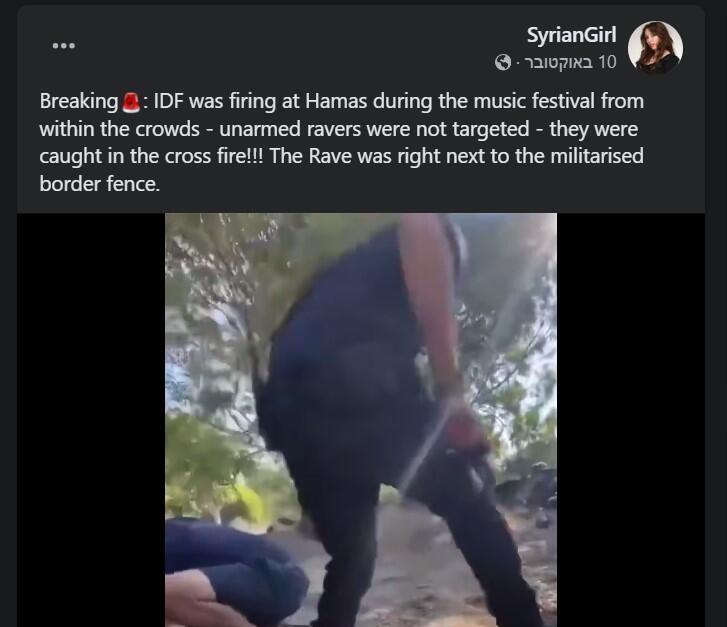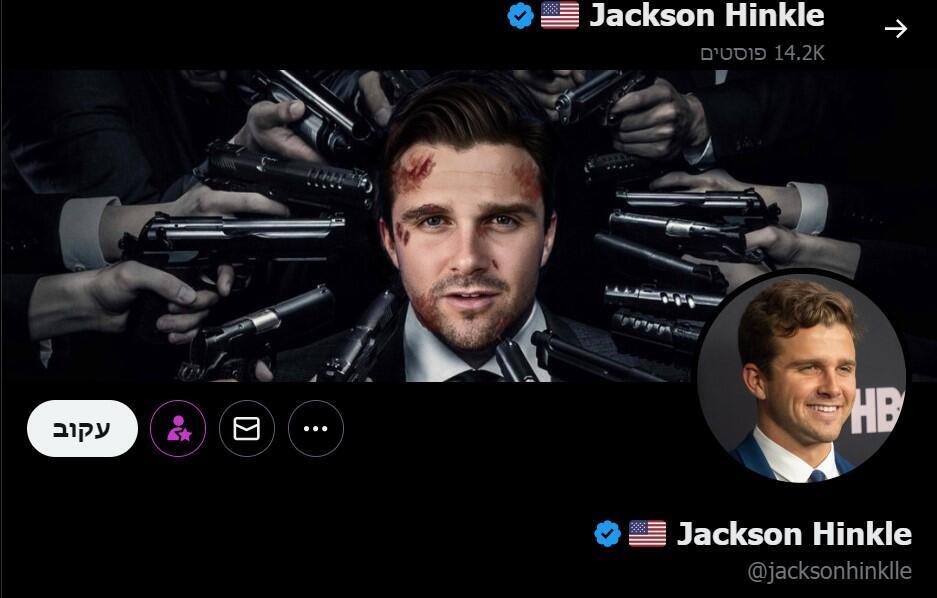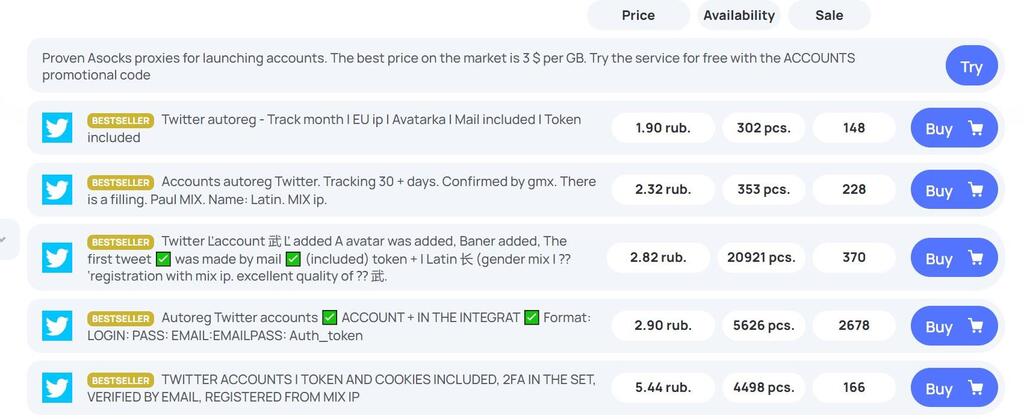The anti-Israel and antisemitic propaganda machine that is hitting the Israeli narratives with all its might is not yet considered a strategic threat to either Israel or the Jews around the world. At least this is the impression one gets given the government's activity during the last month. A study led by the Ministry for Diaspora Affairs and Combating Antisemitism and conducted by Adkit research company demonstrates the extent to which Israeli advocacy fails in dealing with the Palestinian narrative on social media. According to the main data presented in the study, the scope is startling.
Read more:
On X (formerly Twitter), for example, posts spreading false information gained about 100 million cumulative views and millions of supportive comments. X is considered a popular platform, but the number of users is relatively small. However, combined with platforms such as Facebook, Instagram, TikTok, Telegram, and even the professional social network LinkedIn, these messages are disseminated worldwide.
This is a difficult problem for Israeli Hasbara in the world. While the Palestinian and anti-Israeli narrative is slowly establishing itself in international public opinion and portrays Israel as a child-killing monster, the Israeli narrative is perceived as the 'cry of the dispossessed Cossack' in certain aspects. Moreover, the claims of Hamas or parties supporting the Palestinians are equally outlined in the traditional media abroad. Meaning, that Hamas is defined as another party to the conflict, parallel to the State of Israel. As a result, many messages intended to fight for awareness, for psychological warfare, and for drawing world public opinion to the struggle of the Palestinians against the "colonialist and evil" Israel, resonate even among the public who are not aware of the Arab-Israeli conflict and its history.
The main problem is that this battle for public opinion is far from being a collection of disconnected activities by various parties who see Israel as the bad side of the story. This is a propaganda machine, or rather propaganda machines that have been operating regularly for more than a decade and have a profound impact on awareness and international public opinion on a variety of issues. The Israeli-Palestinian conflict constitutes an excellent and easy framework that numerous factors use for illustration, distortion, and shaping.
One can see that the messages spread against Israel are not a result of single actions made by separate parties, by simply watching the first speech of Hezbollah Secretary General Hassan Nasrallah in the first week of November 2023. In his speech, Nasrallah stated that a major part of the victims of the Nova festival massacre on October 7, as well as of those throughout the Gaza Strip, were shot by IDF forces. This claim was asserted about a week beforehand by accounts that spread pro-Palestinian propaganda on X, on various channels on Telegram as well as on other social networks.
6 View gallery


Fake claims that Nova Music Festival ravers were caught in crossfire
(Photo: Screenshot from social media)
How is it possible that the leader of Hezbollah makes the same arguments in his speech? Is there a connection between Hezbollah and anti-Israel propaganda activists on the network? Despite his relative isolation from the outside world, cowering in his bunker, Nasrallah echoed a clear pro-Palestinian message, which was also visually supported on the networks by using a video of the IDF spokesman showing Israeli Air Force helicopter gunships shooting at Hamas terrorists.
The Palestinians claimed that these terrorists were Israelis who were massacred by our (Israeli) helicopters. It may be clear to Israelis that this is cheap manipulation attempting to reduce Hamas' responsibility for the massacre, but for those who are not privy to the details, this is certainly easy to believe, especially when the photos portraying the battle make it hard to understand who is a terrorist and who is not. The video emanating from the pilot's helmet camera is based on a night vision system, which does not allow to see more than greenish figures running and being massacred by helicopter guns.
The countries behind the propaganda machine
This and other messages are being regularly uploaded on social networks and conveyed in interviews to media outlets and blogs by pro-Palestinian factors. But the current working assumption for many in the field is that this is a well-coordinated machine, which operates systems of bots and struggles to support one side of the narrative while mocking the counterarguments. Hamas uses digital means to echo its messages, but according to all indications, it is not an organization that is capable of such a level of sophistication in spreading propaganda. We should look for the culprits elsewhere. From conversations I had with many factors in the worlds of digital content, cyber, and information, we can almost certainly assert that what we are experiencing is a combined awareness attack made by national factors, extreme left-wing intellectuals and academics, far-right parties and neo-Nazis, trolls and the public of Muslim believers, which naturally inclined to side with the positions of their co-religionists.
A digital Intifada?
Such a network of propaganda distributors is easy to find. The anti-Israeli, pro-Russian, and Iranian network of influencers includes, among others, the American Jackson Hinkle, the Syrian-Australian Maram Susli (Syrian Girl) as well as Max Blumenthal, an American conspirator and the owner of a pro-Russian, Chinese, and Iranian extremist website Grayzone, married to another network influencer named Anya Parampil. Their words are echoed by the British network activist Asa Winstanley, one of the leaders of the British pro-Palestinian website Electronic Intifada.
There is also the "doctor" (it is not clear if she has a license to practice medicine because she participated in spreading fake news about vaccines during the Covid period) the Danish Greek-born Anastasia Maria Loupis, who regularly publishes antisemitic content. Each of them has hundreds of thousands of followers and some even more than a million, which means that any post they upload easily reaches a huge audience in a short time on all known platforms, although the majority starts from tweets on X.
Blumenthal is followed by about half a million X users, Loupis by almost 900 thousand, but the crown must be given to Hinkle, whom about 1.5 million users follow. For comparison purposes, this number of followers is higher than Noa Tishbi's, one of the leading Israeli advocates in the U.S., who has less than 200 thousand followers.
Gal Gadot, in comparison, has 3.7 million followers. This means that Hinkle - antisemitic, pro-Russian, having extreme views, and a fan of conspiracies - reaches a huge audience without having starred in any Hollywood blockbusters. The tweeter Zuf Bar Or did in-depth research on Hinkle that was published on his X profile, in which he describes Hinkle's transformation from a left-wing tweeter who loves communism to an extreme right-wing conspirator. It is enough to say that Hinkle, only 24 years old, has already managed to spread theories according to which Assad did not massacre his own people, Israel supports al-Qaeda and Putin is the most popular president in Russian history with 83% support.
These are of course superficial arguments that echo anti-Western messages, and it is not surprising. Hinkle, for example, echoes messages that praise countries such as Hungary, Turkey, Ghana, and Uganda for their fight against LGBT. His messages are filled with extreme right-wing agendas, he flirts with the Incel (Involuntary Celibate) movement and toxic masculinity, displays full faith in numerous crazy conspiracy theories, and in general he seems like a person who believes in everything that a reasonable and non-paranoid person would reject based on a logical analysis of reality. It is evident that he uses the fears of a large public and leads them in directions that suit his agenda. The same audience thirsts to believe that Israel is a monster trying to destroy the poor Palestinian people.
Hinkle and the like feed them with these arguments. Consequently, one can find them in protest rallies in the streets of big cities in Europe, the USA, Africa, and Asia, adding up to the public that supports the Palestinian side. It is clear that all these tweeters echo each other and increase the distribution of each of their arguments. Another group that is being echoed by this group is Prop. & Co (Propaganda & co), American Muslims, BDS activists that seem to have a progressive agenda, who engage in the production of fake news videos with widespread exposure and linked to Arab media networks, and all being done in fluent American English and intended for students or hipsters.
Another channel through which the distribution of anti-Israel propaganda is being increased is bots. About half of the active profiles on X that relate to the war between Israel and Hamas are bots. Another 20% are only suspected of being bots or fake accounts, and only a third are profiles of real people – according to the research led by the Ministry for Diaspora Affairs.
In a report conducted by Cyabra (Social Threat Intelligence Company), it was found that 21% of profiles that were included in the discourse on X about the involvement of the U.S. in the war against Hamas were bots linked to Iraq. The bots used the hashtag #AmericasponsorsIsraelTerrorism, and in many cases published quotes and pictures of Muqtada al-Sadr an Iraqi Shiite politician and cleric, which indicates their connection to Iraq. Most Iraqi Shiite militias are controlled and directly funded by Iran, so it is not surprising that the same bots also serve the interests of Hamas and Hezbollah.
Russia is another entity that operates its network of disinformation in favor of Hamas. "The Russians are trying to become an empire, and Putin wants to restore the greatness of Russia as in the time of the tsar," explains Arkady Mil-Man, a senior researcher and the Head of the Russia Program at the Institute for National Security Studies (INSS) at Tel Aviv University, in a conversation with Ynet. Mil-Man, who served as Israel's ambassador to Russia and Azerbaijan, adds that the Russian strategy of using agents of chaos to sow uncertainty and division in public opinion is a very old method. "Hamas, Iran, and their supporters serve as useful idiots for the Russian propaganda system", he says.
"Cultivating the relationship between Russia and Hamas reflects the Russian strategy to maintain good relations with various parties involved in the conflict. As far as Hamas is concerned, the relationship with Russia is of great importance, because it positions Hamas as an organization that is welcome to one of the most important capitals in the world. In principle, Moscow adheres to the position according to which Hamas - defined as a terrorist organization by the USA, Great Britain, Germany, and other EU countries - is a legitimate political organization," states Mil-Man in a position paper he published in collaboration with Bat Chen Druyan Feldman, PhD Student at the School of Historical Studies at Tel Aviv University.
"The main interest today is to divert the attention of the West, led by the U.S., from Ukraine. The increasing American involvement in the Middle East serves this goal. On the other hand, Russia blames the U.S. for the outbreak of the current conflict. Second, Russia aims to restore its position as an influential international player and is therefore trying to promote a ceasefire in Gaza. In addition, Russia's relationship with Iran became a strategic alliance following the war in Ukraine, and to maintain it, Moscow promotes a supportive policy towards Iran's allies, including Hamas - even though Moscow is comfortable with the U.S. focusing its attention on the Middle East."
Another political power that works against Israel is China. Officially, Beijing may not discriminate between Israel and Hamas, but its dissatisfaction with the success of the Israeli-U.S. partnership is expressed by erasing Israel's name from maps appearing in Chinese applications, which is not done randomly or independently. In China, no action is taken without a political commissar being informed about it, surely when erasing a legitimate country from maps that are used by many Chinese daily.
A few days ago, the conservative American newspaper "Washington Examiner" published a study that revealed alleged connections between a socialist activism hub in New York that organizes protests against Israel, including many protest rallies such as the one held in New York a few days ago, and funding systems of the Chinese Communist Party. According to this hub's tax forms, it appears that it also receives funding from pro-Hamas groups at the same time. The same hub also organizes events where pro-Chinese and anti-American content is regularly distributed. The newspaper's study concludes that this is nothing less than a propaganda entity funded by China, which also echoes arguments supporting Hamas and the Palestinians.
"We come to this battle unprepared"
This is not just countries or tweeters funded by intelligence services or propaganda organizations. "It is important to understand that this is a well-oiled machine. These are mind-attack campaigns, integrated in cyber and in the physical world," explains to Ynet Gadi Evron, one of the founders of the Civic Center for the Coordination of Cyber Activities (ILC4) and CEO of AI cybersecurity company. According to Evron, these actions are also intended to directly harm Israeli advocacy efforts online. "The adversary identifies successful Israeli activists, and then invests in resources to destroy them, whether by sending messages in their name, commenting on every post of their friends, posting their number on porn sites, and even reaching their homes as was the case with two Israeli activists in the U.S. They destroy the activists' reputation and ability to live, as well as aiming to harm them psychologically. We come to this battle unprepared, while the activist organizations, as well as the Iranians, act professionally."
Evron is not the only one who claims that Israel's advocacy is absent and that Israel has neglected the Hasbara arena. Omri Rolls from the Civic Information Center, one of the Israeli civil organizations that stepped in for the sake of Israeli public diplomacy on the networks, also says that almost all Israeli advocacy activities on social networks rely on private civil initiatives. Since MK Galit Distel-Atbaryan's non-functioning Ministry of Public Relations was dissolved and some of its authorities were transferred to the Ministry for Diaspora Affairs, Israel has no presence on the international network. There is an information body in the Prime Minister's Office, which does not try to act horizontally and concentrate the advocacy battle. While Israel's opponents allocate tens if not hundreds of millions of dollars to these influential networks, in Israel there is not even one organization that coordinates these operations, let alone a body that also knows how to physically protect Israeli activists and their outputs.
"When you connect all the dots, you can see very clearly who is the 'sponsored' behind the scenes," explains Liav Refael Chen, CEO and founder of Humanz, an influencer marketing platform start-up specializing in marketing and management on social networks. "On the other hand, Israeli influencers act at their own expense to create Israeli advocacy in the world. Why did the account of the influencer Shaun King with almost 5 million followers allocate everything to activities that support terrorism, and whitewash Hamas behind the scenes? And he is not the only one. He and many others with huge numbers of followers express a clear stance against Israel, do not mention the word Hamas, and articulate very similar messages." This funding is even more obvious when you start to analyze the anti-Israel activities on social networks. If half of anti-Israel accounts are based on bots, this involves a very large amount that requires financial resources. To get hundreds of bots you don't need to spend very large amounts; the prices range from a few single dollars to hundreds of dollars for very large scales of tens of thousands of bots.
But one should also bear in mind the quality of the accounts that distribute the information. A fake account that is operated by humans or that is based on texts and images created by artificial intelligence systems, for example, costs more money. The funding sources are also creative. These can be surfers from Pakistan or Bangladesh who want to express solidarity with the Palestinian people and donate a small amount, and thus such bots can be purchased, explain Naveh Ben Dror, Ron Egozi, and Ron Shtorper from Spikerz. The latter two have experience in psychological warfare and intelligence from their military service, so they are aware of how mind-influence campaigns work. According to their data (Spikraz specializes in securing user accounts on social networks), there is a significant increase in blocking profiles and erasing pro-Israeli content. "From the number of incidents that have come to us, it seems that there is an increase of more than 100% of this type," they say.
And what do social networks do? Well, here things are not clear at all. China's TikTok works hard to show that it fights against attempts of propaganda or conscious influence, erasing inappropriate content or limiting the availability of videos with improper content. Meta, which has already been at the center of scandals such as Cambridge Analytica, the genocide in Myanmar, or live broadcasts of terrorist events, do not want to take sides. Although the Israeli branch is of course working diligently to help the victims of terror events, the international company settles for irritating neutrality.
For example, when we asked why it allows the activity of Propaganda & Co on Instagram following fake news footage that was viewed approximately 11 million times, they answered: "We work with independent third-party fact-checkers to handle misleading information on our platforms. When they rate content as false, we reduce its distribution on the feed, which means that fewer people will view it. Eventually, it is up to these organizations which content they choose to review and rate." In other words, Meta lays the responsibility on external organizations that are responsible for managing the content on its platform. It should be noted that after our inquiry the video was removed, but the activity of the account is still there, and it does not seem to be going anywhere if it depends on Meta.
Supervision? Don't make Elon laugh
Telegram has minimal to non-existent supervision over content published on the application's channels, and it should be noted that its founder Pavel Durov takes great pride in it. Since Elon Musk took over X, Community Notes has been its main monitoring mechanism, which means that there's a community rating for the quality of the content. The inciting content is being distributed there directly, and they don't even try to hide their source; let alone the Russian social networks such as VK or the Chinese social networks such as WeChat. As we have seen, the anti-Israel discourse originates in those countries or at least is supported by them. We're left with only Google's YouTube, which also distributes problematic content, but less than other networks. However, the service (YouTube) hosts channels of all the 'usual suspects' mentioned above, from the Syrian girl, through the Electronic Intifada channel to Propaganda & Co.
When we asked YouTube about its policy they explained: "Following the terror attacks by Hamas in Israel and the rampant escalation that is currently taking place in Israel and Gaza, we removed tens of thousands of harmful videos and closed hundreds of channels. At the same time, our systems continue to provide quality news and information. Our teams continuously monitor harmful content and take immediate action, when necessary, about all types of content, including shorts and live broadcasts." However, they let us understand that the company acts mainly against specific content, that is, a certain video must be flagged to have it checked and removed, and that YouTube does not remove entire channels. The company does make sure to set age limits on problematic content - a restriction that can be easily bypassed - and prioritizes quality content that comes from official or reliable sources.
It is difficult to draw the required conclusions from our research. In a country where there are so many worldwide digital resources, finding ourselves at the bottom of the barrel brings up a strong feeling of helplessness. Although the Jews constitute only 0.2% of the world's population compared to about 1.8 billion Muslims who are almost a quarter of the world's population, still, social networks still prioritize populism and trends over reliable or valuable content. Therefore, if Israel fails to establish a body to professionally coordinate and manage its psychological war against Hamas or any other terrorist entity, we will continue to lose the battle for global public opinion - at least that of the young people who will become in a few decades the adults who will rule the world.
Avi Cohen-Scali, CEO of the Diaspora Affairs and Combating Antisemitism Ministry, responded to Ynet's question about the poor state of Israeli advocacy on social media: "The Ministry for Diaspora Affairs and Combating Antisemitism takes seriously the toxic content of social networks spread by factors linked to Hamas producing violent, false, fake, inciting and criminal narrative against Jews and Israeli society. These days we are establishing a government forum that will attend to the matter and formulate concrete recommendations regarding bots. At the same time, we intend to contact senior officials of the social network X (formerly Twitter), aiming to tighten the supervision of the contents uploaded there, which currently constitutes a 'playground' for supporters of terrorism and significant anti-Israel, anti-Zionist and antisemitic narrative."







